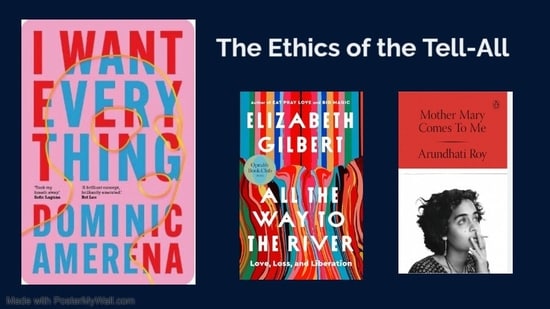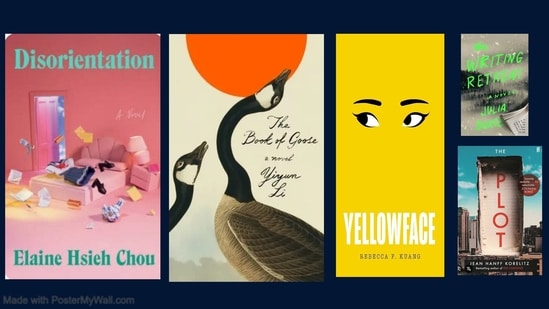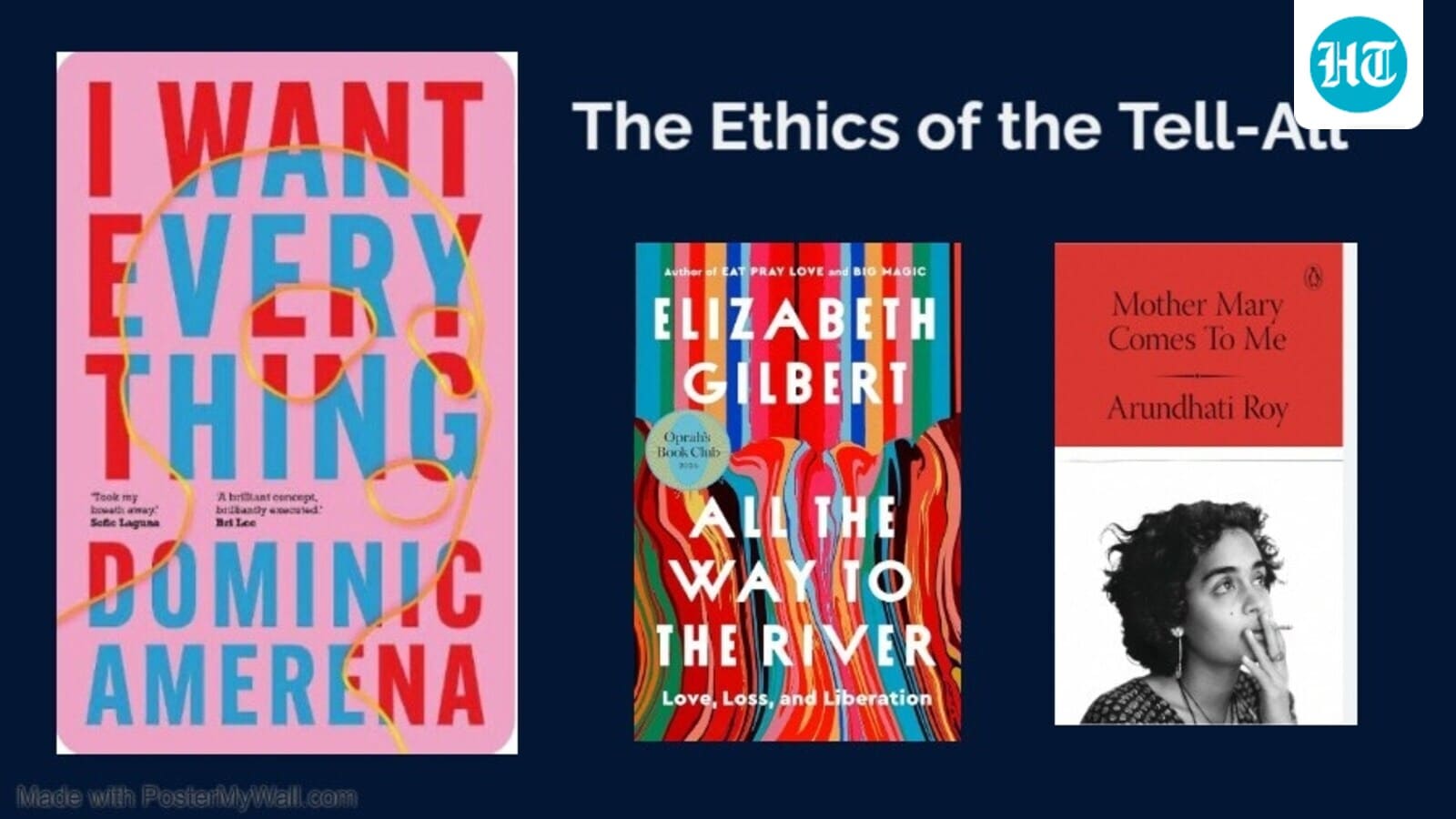Dear Reader,
 As I read these books and discuss them with friends and book clubbers, one question keeps coming up – is it okay to tell other people’s stories?
As I read these books and discuss them with friends and book clubbers, one question keeps coming up – is it okay to tell other people’s stories?
It’s the season for tell-alls.
First, the haunting mother-daughter story in Mother Mary Comes to Me by Arundhati Roy.
And now comes All The Way to the River, a memoir by Elizabeth Gilbert, bestselling author of Eat, Pray, Love. Her latest memoir has the ingredients of a blockbuster – addiction to drink, drugs, love and sex, and an explosive same sex relationship between Gilbert and Rayya, her hairdresser-turned- friend-turned-lover.
Rayya is diagnosed with terminal cancer and relapses into drug addiction, driving Gilbert so crazy that she tells us about her serious intention to murder Rayya. Talk about candid confessions.
As I read these books and discuss them with friends and book clubbers, one question keeps coming up – is it okay to tell other people’s stories?
The answer appears in the pages of a book. It is fiction once again, that gives me clarity. I read a recent bestseller, a literary thriller called I Want Everything by debut Australian novelist Dominic Amerena.
Set in Melbourne, the story begins with our failed novelist protagonist suddenly sighting a reclusive writer called Brenda Shales, a controversial feminist icon that he has admired all his life. He tracks her down in the hope she will tell him her story, so he may write a bestselling book about this. Somehow in that process he is mistaken for her grandson, a lie he finds it harder and harder to correct.
In a parallel plot our protagonist has a girlfriend called Ruth who is getting to be successful as a writer. Ruth writes a “daughter-boarding” article about her mother’s problematic parenting skills. It’s a minor storyline but adds to exploring the ethics of writing about real people in a very nuanced way. Are such memoirs the writers way of coming to terms with their traumas? Or are they ruthlessly telling their stories in the pursuit of literary fame ?
If you like cleverly structured novels, full of twists and turns, I Want Everything is for you. It reminded me of Yellowface by R F Kuang in the way it engages with writers and their competitiveness and the ethics of telling stories.
 Every story has at least two sides, but a memoir can only ever truly tell one.
Every story has at least two sides, but a memoir can only ever truly tell one.
There’s been a long line of such novels lately, all lively and thought provoking. There’s Disorientation by Elaine Hsieh Chou, in which a white partner steals the story of his Taiwanese American protagonist. The Plot by Jean Hanff Korelitz, The Writing Retreat by Julia Bartz and The Book of Goose by Yiyun Li are all literary thrillers around authorship and the telling of stories.
In an age of social media, podcasts, and constant self-disclosure, the boundary between one’s story and another’s grows ever thinner. That may be why these memoirs resonate so widely. But as the stack of these books grows taller, on our nightstands and in our bestseller lists – Amerena’s clever thriller serves as a cautionary tale.
It reminds us that every story has at least two sides, but a memoir can only ever truly tell one. Which means the truth of the other characters remains forever trapped in the margins, waiting for a different kind of retelling to set them free.
Dear Reader, What is your take on the tell-all ? Would you do it ?
(Sonya Dutta Choudhury is a Mumbai-based journalist and the founder of Sonya’s Book Box, a bespoke book service. Each week, she brings you specially curated books to give you an immersive understanding of people and places. If you have any reading recommendations or suggestions, write to her at sonyasbookbox@gmail.com. The views expressed are personal.)

